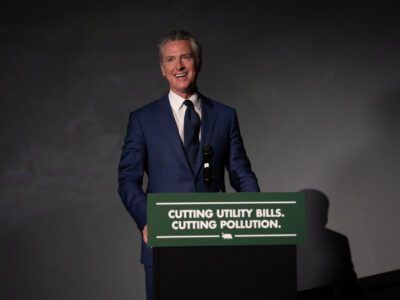How Responsible Are Americans for China’s Pollution Problem?
An online conversation from several perspectives
Yesterday, I participated in an online conversation at Chinafile.com on the question of “How Responsible Are Americans For China’s Pollution Problem?” I post the lead comment by David Vance Wagner of the International Council on Clean Transportation along with my response. Elizabeth Economy from the Council on Foreign Relations and Isabel Hilton of Chinadialogue.net (among other things) also wrote responses, which can be viewed here.
David Vance Wagner: China’s latest “airpocalypse” has again sent air pollution in Beijing soaring to hazardous levels for days straight. Though the Chinese government has made admirable progress recently at confronting the long-term air pollution crisis, it will be years before Beijing’s air reaches acceptable quality. In the meantime, official explanations for the severe smog—large amounts of emissions, poor air dispersion—seem comically inadequate, leaving a frustrated public hungry for more innovative explanations. The latest meme: could the United States be partially to blame for China’s pollution woes?
A couple of arguments support the idea that the U.S. bears some indirect responsibility for China’s air pollution. An excellent study published in Proceedings of the National Academy of Sciences (PNAS) in January found that a small but significant amount of air pollutant emissions in China can be attributed to the production of goods later exported to the U.S. A second, more tenuous argument for U.S. responsibility highlights environmentally unfriendly trends—Beijing’s rapid motorization comes to mind—caused by Chinese middle class consumers chasing the “American dream.”
However, arguments suggesting U.S. fault for air pollution in China worry me for a few reasons. First, the blame game is diplomatically dangerous, antithetical to the idea of the U.S. and China as constructive global partners. Second, regulatory actions implied by the U.S.’ acceptance of responsibility for Chinese air pollution are uncertain and legally questionable (will the U.S. impose an “embedded pollution tax” at the border? Try to set air quality regulations applicable to Chinese factories producing goods for the U.S.?). Third, I worry that such arguments distract attention from the fundamental, direct causes of China’s air pollution—an economy that grew too fast and too dirty for a capacity-constrained government to keep up with—and solutions—deep, enforceable emission cuts from industrial, power, and mobile sources.
Americans need not accept “responsibility” for China’s air pollution, but this is not an argument against U.S. environmental engagement with China. U.S. technical and regulatory assistance to China to solve the air pollution crisis is justifiable for multiple reasons that have little to do with who is to blame for what. Diplomatically, constructive U.S.-China environmental cooperation is a critical bilateral success story. Economically, stronger environmental regulations in China are a potential boon to U.S. companies. Even direct self-interest: Chinese transpacific air pollution negatively affects air quality in the western U.S. (an additional conclusion of the aforementioned PNAS paper).
The U.S.’ experience over the past decades—growing the GDP while dramatically reducing air pollutant emissions—is exactly what China needs right now, and I have been delighted to watch numerous U.S.-China cooperative air quality improvement projects unfold at the national and sub-national levels over the years. Let’s not jeopardize this constructive collaboration by pointing fingers and assigning blame.
My Response:
This semester at UCLA I am teaching torts—the law governing liability for harms done to others—so my mind has been on issues of causation. On the basic issue of whether we Americans are a cause of a significant portion of China’s pollution, the answer is clearly YES. The study Vance cites finds that, in 2006, China’s production of goods for export caused 36% of the nation’s sulfur dioxide emissions, 27% of the nitrogen dioxide, and 22% of its carbon monoxide. Another study found that 33% of China’s carbon dioxide emissions were related to production of exports. In other words, our demand for products leads to a certain amount of pollution in China. These exports are not all to the U.S., but a significant portion of them are. Without our demand for products from China, pollution would probably be less intense.
However, in torts there also has to be something called proximate cause for there to be legal responsibility. Before your eyes fully glaze over, this simply means that we don’t hold actors legally responsible for some harms they caused where someone else was more responsible, the connection between the actor and the ultimate harm was too attenuated, and so on. In other words, in those instances, for some reason we think it would be unfair to hold the actor responsible, even though he was in a technical sense a cause of the harm.
Putting legal responsibility aside for now, the question for me is—given that U.S. consumption is the cause of a certain percentage of China’s pollution, do we think that connection is too attenuated to hold the U.S. responsible to some extent (at least in a moral sense)? I think not. Our consumption in a fairly direct way is contributing to severe pollution in China, with all of the negative consequences that brings. And given persistent shortcomings of Chinese regulation, U.S.—side actors are in some cases in a better position to do something about Chinese pollution associated with exports.
To be more specific, I think raising the question of U.S.- and developed world- responsibility for Chinese pollution has a few benefits. For one, it highlights an important lever for reducing pollution in China: U.S. consumer demand and changing the behavior of the major U.S. companies that source out of (and therefore pollute in) China. For example, local Chinese factories will often be much more attentive to the demands of Wal-Mart (e.g., reduce pollution or you lose your contract) than local regulators. The Chinese environmentalist Ma Jun and my friends at the Natural Resources Defense Council are doing terrific work in this area to encourage American companies to be more attentive to the pollution their suppliers create in China.
It also should lead us to moderate the “soupçon of ‘airenfreude’” (to use Evan Osnos’ term) with which outsiders often view China’s air pollution problems. If instead we acknowledge that we are all in this together, it could help facilitate the types of international cooperation that Vance mentions.
I agree that the primary responsibility for environmental enforcement falls to China. But if U.S. consumers, the private sector, our government, took more responsibility and could help China to reduce upwards of one-third of its pollution, wouldn’t that be a thing worth pursuing?
* * * * *
Again, you can link to the additional responses from Elizabeth Economy and Isabel Hilton, here.







Reader Comments